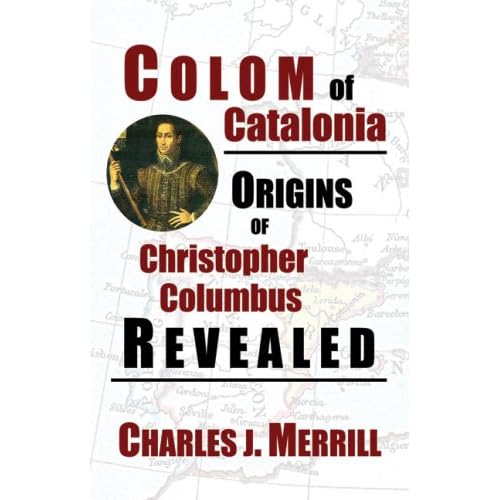 Estudiants de tot el món aprenen que Cristòfor Colom, considerat el descobridor d'Amèrica, era genovès, i que en nom dels reis catòlics va embarcar-se en el projecte que el va portar al nou continent. Però tot un corrent d'investigadors s'oposa a aquesta teoria, i diu que aquest no era l'origen de l'aventurer. L'arenyenc Jordi Bilbeny fa temps que sosté que Colom era català, i que la història ha manipulat aquesta condició per raons polítiques. Ara un autor nord-americà, un país que venera aquest personatge històric, és a punt de publicar un llibre en què coincideix amb les teories de Bilbeny.
Estudiants de tot el món aprenen que Cristòfor Colom, considerat el descobridor d'Amèrica, era genovès, i que en nom dels reis catòlics va embarcar-se en el projecte que el va portar al nou continent. Però tot un corrent d'investigadors s'oposa a aquesta teoria, i diu que aquest no era l'origen de l'aventurer. L'arenyenc Jordi Bilbeny fa temps que sosté que Colom era català, i que la història ha manipulat aquesta condició per raons polítiques. Ara un autor nord-americà, un país que venera aquest personatge històric, és a punt de publicar un llibre en què coincideix amb les teories de Bilbeny.
Charles J. Merrill és professor d'espanyol al seminari Mount St. Mary's, als Estats Units. És expert en literatura catalana medieval i ha col·laborat amb el canal Discovery Channel. Aviat publicarà 'Solving the enigma of Colombus' origins', en què sosté que Colom era català, nascut en una família 'hostil a la dinastia que governava el seu país'. Graduat a la Duke University, l'investigador va passar un any a Cervera estudiant els orígens de l'almirall.
Merrill diu que, 'si bé algunes teories revisionistes sobre els orígens de Colom han estat marcades per motius nacionalistes i consideracions que no tenen res a veure amb la història', la teoria que aquest personatge fos català és la més consistent. Segons ell, aquesta troballa pot tenir importants implicacions per a altres teories històriques i demostrar que el paper d'Itàlia en la Renaixença no fou tan decisiu com s'ha considerat fins ara.
Merrill diu que, 'si bé algunes teories revisionistes sobre els orígens de Colom han estat marcades per motius nacionalistes i consideracions que no tenen res a veure amb la història', la teoria que aquest personatge fos català és la més consistent. Segons ell, aquesta troballa pot tenir importants implicacions per a altres teories històriques i demostrar que el paper d'Itàlia en la Renaixença no fou tan decisiu com s'ha considerat fins ara.
School children around the world are taught that Christopher Columbus was Italian, or, more precisely, a Genoese who sailed to the New World because the Spanish sovereigns gave him the money for the project. The idea that Columbus was Italian also fits well with some histories of the Renaissance, which hold that Italy was the birthplace of the Renaissance and that it spread from there. But what if Columbus were born somewhere else? What if he were Catalan? Such a finding could have far-reaching implications for historical scholarship and for national identities. In fact, it could provide evidence for other historical theories which hold that Italy’s role in the Renaissance may be less prominent than previously thought. These are some of the implications that stem from Professor Charles J. Merrill’s 40-year program of research to discover the origins of Columbus, the findings of which are summarized in this book. "There‘s no question that some of the proponents of the revisionist theories of Columbus’s origins have been moved by nationalism or other non-scholarly considerations," Merrill writes in the Introduction. "The best of the unofficial theories have been published in books and journals with minimal circulation, often in obscure languages, that take a good deal of effort to find and read. Having taken the trouble to find and read them, I propose briefly to rehearse those alternative theories ... then to give the standard, Italian version and explain ... the objections that have been made to it; and then to expound ... the thesis that I think is most likely to be the true one: namely, that Christopher Columbus was a Catalan, born in the principality of Catalonia, a member of a family hostile to the dynasty that ruled his country".
FONT: VILAWEB
FONT: VILAWEB